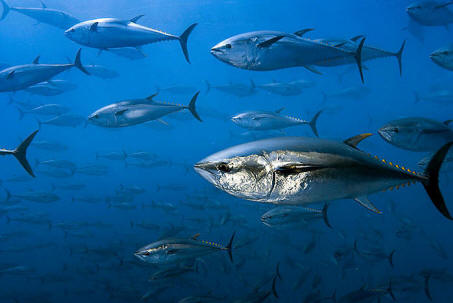Like those samples tested by The Times, many of the Oceana samples had levels of mercury exceeding those that would allow the Food and Drug Administration to take legal action to remove it from the market.
Mercury is believed to affect neurological development of fetuses and young children. Some studies have suggested it may cause health problems in adults, too. Since 2004, the Food and Drug Administration and the Environmental Protection Agency have recommended that women of child-bearing age and young children eat no more than 12 ounces of fish a week, including no more than 6 ounces of canned albacore tuna, and avoid swordfish, tilefish, king mackerel and shark because they are high in mercury.
Oceana tested samples of fresh tuna, swordfish and tilapia, as well as tuna and mackerel sushi bought in 26 cities and found that the average mercury concentration of tuna steaks in 23 grocery stores was 0.68 parts per million, even higher than the 0.57 parts per million that was the average for tuna sushi that The Times bought in stores. Swordfish levels were even higher; tilapia and mackerel were very low.
The mercury content of tuna sushi from the 24 restaurants in the Oceana study was 0.86 parts per million, quite similar to the average of 0.88 parts per million that The Times found in tuna sushi in restaurants. One third of the tuna sushi in the Oceana study had more than one part per million of mercury, the level that would allow F.D.A. to remove the fish from the market, something it rarely does.
In 2005 Oceana launched a campaign to make major grocery chains post at their fish counters government warnings about tuna. Since then several chains, including Whole Foods, Vons, Dominick’s, Safeway and Trader Joe’s, have agreed to post some information.
But Oceana said that when seafood counter attendants were asked what the FDA advice is for those women and children, they found that 87 percent either gave an incorrect answer or incomplete information or simply said they did not know.
Oceana is asking the FDA to require warnings at seafood counters, to add fresh tuna to its “do not eat” list and to increase the frequency of its testing of fish.
